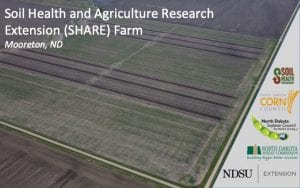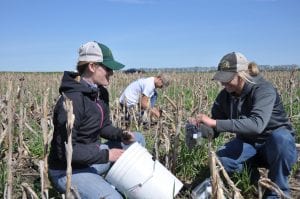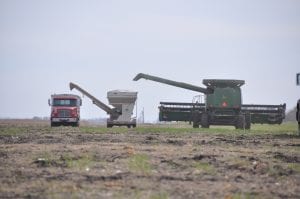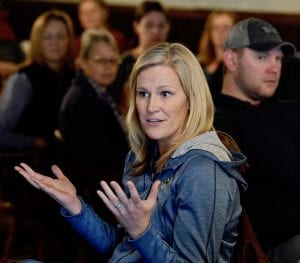Salinity research studies initiated
Soil Health Café Talk program launched
The SHARE Farm Concept
The Soil Health and Agriculture Research Extension (SHARE) Farm is the premier site for the NDSU Soil Health program where field-scale, long-term, farmer-driven research is being conducted. To accompany the research program is an equally complex Extension program. The goal of the SHARE Farm is to bring whole-systems evaluation to soil health building practices by involving NDSU faculty from soil science, plant science, entomology, climatology, engineering and ag economics.



